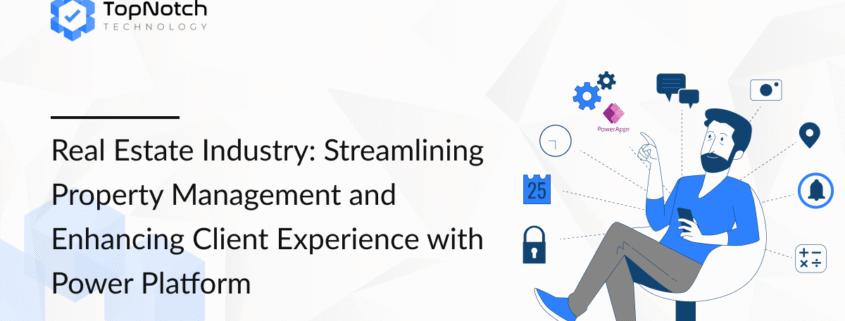Real Estate Industry: Streamlining Property Management and Enhancing Client Experience with Power Platform
Introduction: The real estate industry has seen significant changes due to digital transformation. As the demand for property management solutions and online property searches grows, real estate firms need to adopt innovative solutions to stay competitive. Microsoft Power Platform offers tools that can help real estate professionals automate administrative tasks, manage properties, and enhance customer experiences.
Challenges in Real Estate:
- Property Management: Managing a large number of properties, including maintenance, rental agreements, and tenant communications, can be overwhelming.
- Client Expectations: Clients demand quick responses, personalized recommendations, and seamless transactions when buying or renting properties.
- Market Competition: With increasing competition, real estate firms must stand out by offering better service, more personalized experiences, and efficient operations.
- Data Management: Real estate companies collect large amounts of data on properties, transactions, and market trends, which need to be efficiently managed and analyzed.
How Power Platform Helps in Real Estate:
- Power Apps: Real estate companies can build custom apps for property management, tenant communication, and client interactions. For example, an app can allow property managers to track maintenance requests, communicate with tenants, and manage rental contracts.
- Power Automate: Power Automate can streamline processes such as lease renewals, client communication, and property inspections. For instance, when a lease is about to expire, Power Automate can send automated reminders to both tenants and property managers.
- Power BI: Power BI can help real estate firms analyze market trends, track property performance, and visualize client engagement. Real-time dashboards can provide insights into sales performance, rental occupancy rates, and lead generation effectiveness.
- Power Virtual Agents: Virtual agents can handle common client inquiries, such as property availability, pricing, and viewing schedules. This reduces the workload on agents and improves response times.
Case Study: A property management firm implemented Power Platform to manage tenant communications and streamline lease renewals. By using Power Automate for notifications and Power BI for market analysis, they improved operational efficiency by 30% and increased client satisfaction.
Explore how Power Platform can optimize real estate operations.
Conclusion: The industries covered in this series represent just a few examples of how Microsoft Power Platform can drive digital transformation across various sectors. From healthcare to real estate, organizations can leverage Power Platform’s capabilities to automate workflows, improve decision-making, and ultimately deliver better outcomes for their customers and stakeholders.
For businesses looking to adopt these solutions, the next step is to explore specific use cases and consider how Power Platform can align with their organizational needs.
